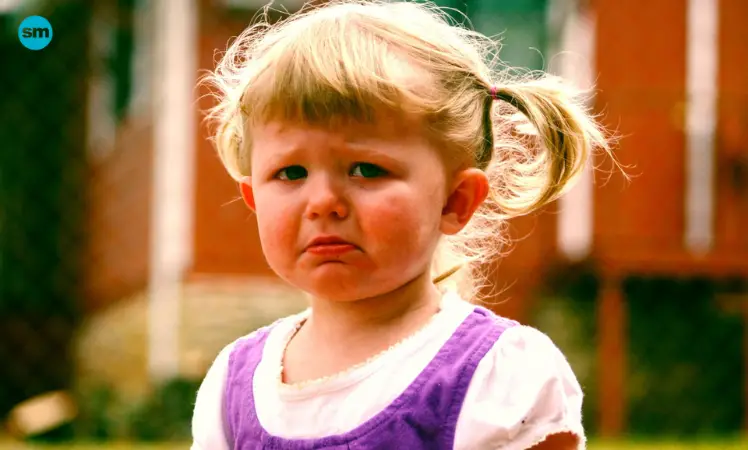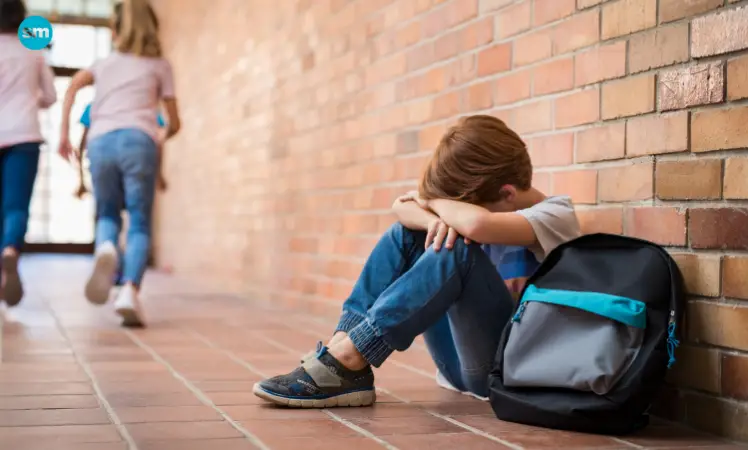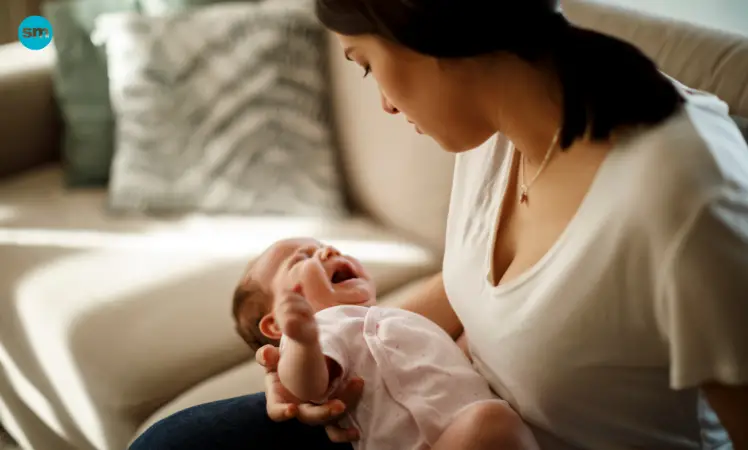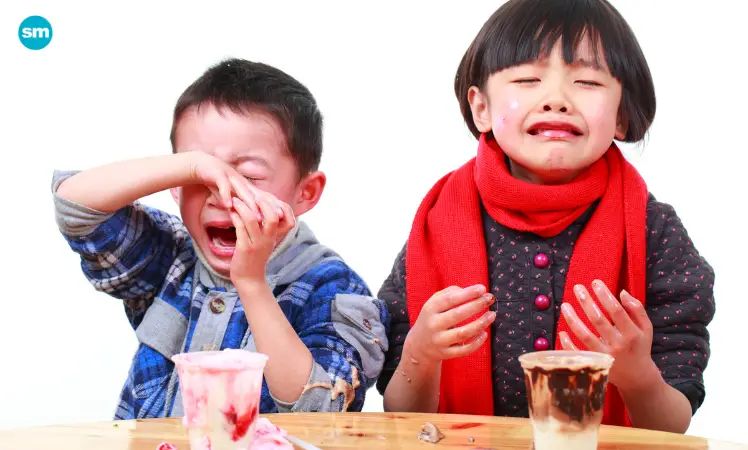Last Updated on February 1, 2024 by Lori Pace
It doesn’t matter if it makes sense or not, crying children are always communicating a message to their parents. Your child is more than a crying baby, and that the content of the message will change depending on their developmental stage and what’s happening. No matter the trigger, tears can let you know your child needs some help to manage their emotions so they can move on. These are the hidden messages that your child’s sobs may be sending you. Here are some ways you can help when your kids cry.
Understand When Your Kids Cry
Your Kids Cry When They Says “I’m Exhausted.”
Overtired children (or adults for that matter) release extra adrenaline or cortisol to keep them awake. These hormones are the same ones released when they’re stressed. It’s still difficult for kids to manage their emotions and impulses when their reasoning centers aren’t fully developed.
How Can You Help?
Once your child realizes that their tears are due to tiredness, you should not try and convince them otherwise. Tired children have no time to deal with any type of frustration and this is not the right time to try and talk it through with them. Rethink your family’s sleeping habits if this is a regular occurrence.
Your Kids Cry When They Says “I’m Overwhelmed.”
10 to 35 percent of people are more sensitive than others to noises, lights, and commotion. Children can get overwhelmed by noises and chaos, such as birthday parties, and may even cry.
How Can You Help?
Remind yourself that children can benefit from crying. Instead of trying to soothe your child’s emotions, say something like “That was hard.” You are really upset.” “I’m right there.” “I can help you.”
Your Kids Cry When They Says “Something Hurts.”
Infant crying, babies’ cries of pain are louder, more intense, and require more breaths. Frusty cries, on the other hand, are more low-pitched, and more irregular. Children can start to cry when they anticipate pain. They can now look into the future and see that something will hurt, such as a splinter being removed or a shot being given.
How Can You Help?
A gentle hug or touch will increase the flow of oxytocin, a powerful natural painkiller. If the cause of the pain is a bump or fall, an ice pack can provide a soothing effect and reduce swelling. You can plan a short and enjoyable activity for them to do afterwards, such as a trip to the park with marshmallows or hot cocoa with marshmallows. This is not to reward them for being good, but to give them something to look forward to so that they don’t obsess about the shot.
Your Kids Cry When They Says “I Need Food Now!”
Children can feel hungry, just like adults. Keep in mind that children need to eat three to four times a day, which is three to four meals and two snacks. Their brain’s ability to think, learn, and regulate their emotions can slow down if they don’t have enough fuel.
How Can You Help?
Plan ahead if you know your child is sensitive to food and bring snacks with you when you go out. Keep a few “emergency” protein bars and fruit leathers with you in case of an emergency. Young children are not capable of waiting for food and putting their hunger aside. They are more likely to cry and scream when they have no food left. Offer an “appetizer” such as baby carrots, salad or apple slices to your child if they are always hungry while you cook dinner. Don’t ask your child what they would like to eat. Give them what you are confident they will accept. They can’t think right now so offering them options is likely to cause frustration.
Your Kids Cry When They Says “I Feel Guilty.”
Children begin to feel empathy towards others around the age 3 and may even cry when they hurt someone or do something wrong. This is both a sign for true remorse as well as a conscious effort to avoid trouble. Fear may also be a reason for these big, guilty tears in toddlers. Your child may think, “If I do something wrong, will you not love me again?”
How Can You Help?
Show your child how to forgive so they can move on from the difficult situation. Ask them, for example, what can they do to make their sister feel better? They might suggest rebuilding it, or they may say they are sorry.
Your Kids Cry When They Says “I’m Scared.”
Fear is a normal and healthy emotion that helps humans survive. Babies and toddlers cry often when they feel overwhelmed. Children have trouble understanding sudden or unexpected events. A darting dog or cat, or a loudly flushing toilet can cause tears in children. Around age three, your child may begin to have a vivid imagination and start to fear animals and the dark.
How Can You Help?
Empathize with them, even if they seem completely unreasonable. Dr. Huebner says that children calm down when they feel heard. Think about it: When you are upset, someone will try to minimize it or fix it immediately. This can often make you feel worse. You can start by saying, “That seems too scary for me.” Encourage your child to say, “That seems so scary for you.”
Your Kids Cry When They Says”I’m Mad!!”
The frustration of a child can make you cry. Toddlers and preschoolers are often frustrated when they stomp on their feet, yell, or bang on doors. They may be angry because they feel unfair or that someone has blocked them from achieving their goals. Your child’s brain is still developing in areas that will allow them to be more flexible. Yelling is an impulse reaction and not a choice. Even children as young as 8 or 9 years old don’t have the same emotional control as adults.
How Can You Help?
Tell your child, “You are really mad.” It was cold outside, but you wanted to wear your sandals. For an older child, “Man! You seem so frustrated.” I understand how much you want to get there. Empathy can help you to wipe away their tears, no matter the reason they fell.
Five Ways to Keep Cool During a Tantrum
When your child is acting out, the best thing to do is to keep calm. Your stress can only make things worse. No matter what you do, don’t make your child cry.
- Remember: They’re only small children – Your child needs to be irrational in high-emotion times because they can’t stay rational
- Pause. Just pause – take a 30-second rest when you get upset. In the moment between being triggered and choosing a reaction, think about your best parenting self. And how you might channel it now.
- Imagine yourself dancing in a storm – Although a child’s tantrum may seem crazy at the time, it will soon pass. You’re just waiting, and you’re calm and nonjudgmental.
- Breathe in for 4 seconds, and out for 6 seconds – Paced breathing is a technique that allows you to breathe in a controlled manner. This triggers your relaxation response to calm you down. You don’t have to hide this from your child. You’re showing your child, in a safe manner, that you can have big emotions as well as demonstrating what you can do for them when they feel the exact same way.
How To Help Them Stop From Crying
First Listen, then Fix
Do not rush this part. Listen to your child’s story. Wait until they soften their expressions or smile. This is a sign that they are ready for you to offer advice or explanations. Adults tend to gloss over emotions in an effort to find a solution. But kids can’t listen until they feel heard.
Give Some Space
Some children like to be held but others need their own space. It’s an opportunity for your child to learn how to calm down. Ask your child if they would prefer a quiet place in their bedroom or a cozy spot on the couch with books and blankets.
Get an Ice Pack
You can help your child snap out of a particularly intense emotional spiral by splashing some cold water on their foreheads, eyes, cheeks, or cheeks. The “dive reaction” is triggered by the cold sensation. This causes the body to slow down its breathing and calm down, which in turn brings down the emotional temperature. Before you do this, make sure you ask your child.
Get wild
Children who cry often may be letting go of tension and storing up energy. It is best that you incorporate roughhousing and dancing or chasing one another around the house into your daily schedule. It’s almost like opening a pressure valve. It’s a way for single mothers to raise a happy child.




